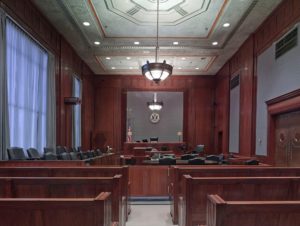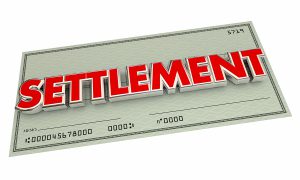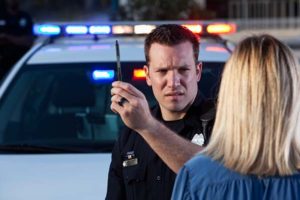The story about the family did not actually happen, but serves as an example of evaluating the liability and responsibility is you are injured because a tree falls on you or your car.
WHO IS LIABLE WHEN A TREE FALLS?
As residents of Maryland braced for the third Nor’easter rains and prevailing winds brought tragedy to the small communities along the Mayo Peninsula.
According to the Maryland State Police and Anne Arundel County Police Department the Turwood family were traveling with their two small children home from an evening in Annapolis when apparently a tree saturated from the excessive rains and snow fall from the third Nor’easter to slam the East Coast in a week fell across Central Avenue killing Samuel and Patricia Truwood.
DEATH THE SCENE
The Truwoods were pronounced dead at the scene. Their children were uninjured, but taken to Anne Arundel Medical Center for examination. Hospital spoken person announced that the two Truwood children, ages five and seven were released into the custody of their grandparents. Family and friends are devastated by this tragic accident that left these children without their parents.
Flooding during high tides Saturday from the powerful storm inundated roads, snapped trees and knocked out power to several thousand Peninsula residents. The tree that killed the Truwoods fell across Central Avenue striking the families’ vehicle and knocking out an electrical transformer that created a fire and blocked lanes, north and south bound for more than six hours. Traffic from the accident forbid resident from returning home or those leaving the small Chesapeake Bay waterfront communities until fire rescue workers and BGE could clear the road and restore power.
SERIOUS INJURIES
Witnesses at the scene reported that the Truwoods family was pulled from their vehicle by other travelers before the SUV was consumed by the fireball caused by the exploding transformer and ensuing fireball. Unfortunately, the fallen tree had already taken the lives of Samuel and Patricia when the eighty foot tree crashed through their windshield crushing the adult Truwoods.
The National Weather Service expected wind gusts of up to 40 mph (64 kph) in coastal areas Saturday, down from Friday’s hurricane-force gusts.“The primary remaining hazard is all the floodwater including the effects of the high tide with the continued onshore flow of the wind,” said Patrick Burke, a meteorologist with the National Weather Service Weather Prediction Center in Maryland. “The damaging winds we saw yesterday have calmed down just a bit. But it’s still going to be a windy day.”
But those diminished winds could not stop this tragedy and the devastation to the Truwood family and the communities along the peninsula.
RURAL ROADS IN MARYLAND
Like many roads in rural Maryland, Central Avenue is two lanes with no shoulder, lined with aged trees – beautiful to the eye, but often deadly when fallen. Roads are often poorly lit and prone to flooding in the slightest rain. So tree roots can stay saturated for days. These trees can fall without warning during and after storms when the ground is saturated and winds associated with those storms sway the tree tops. The Truwoods became victim to this storm.
The Truwoods were both long time residents of the Mayo Peninsula. Samuel, 32 was employed by the Social Security Administration in Baltimore and Patricia, 31 was a house wife and volunteer for the Chesapeake Bay Foundation. Both were graduates of South River High School and active in alumni programs. Samuel is also a graduate of Loyola in Towson, Maryland with a degree in Business Administration. The family regularly attended Our Lady of Perpetual Help in Loch Haven.
There is no information from the family as to funeral arrangements for the couple who had been married for ten years.
This Nor’easter has claimed the lives of twelve along the Eastern Seaboard whether by fallen tree or traffic accidents.
ANOTHER EXAMPLE OF DEATH BY A FALLING TREE
Betty Baumann, 76, was checking the mail outside her Kingsville home Friday when she was struck by a falling branch and killed. Until the deaths of the Truwoods, Bauman’s was the sole reported death from the storm that knocked out power to nearly half a million customers across the state. The strong, gusty winds toppled trees and power forced major arteries closed and prompted Gov. Larry Hogan to declare a state of emergency.
Utility crews and residents across Maryland continued to work Monday to address the roughly 30,000 outages that remained. Officials from Baltimore Gas and Electric said more than 395,000 customers had had their power restored.
WHO IS LIABLE WHEN A FALLEN TREE CAUSES A TRAFFIC ACCIDENT?
Your accident may have involved a fallen tree that was owned by a government entity, such as a federal, state, or local agency. Historically, citizens were not allowed to sue government entities for their negligent acts or omissions because the government was said to have “sovereign immunity.”
However, in modern times, federal and state governments have enacted laws that permit citizens to sue for damages resulting from their negligent conduct. However, these laws delineate special procedures, time limits, and monetary caps for negligence claims against the government.
If the fallen tree was owned by a federal agency, your negligence claim will be subject to the provisions of the Federal Tort Claims Act (FTCA). Under FTCA, you have two years from when your negligence claim arose to file an administrative claim with the federal government.
The federal government will then have six months to make a determination regarding your claim. If your claim is rejected, or if the federal government does not pay the monetary damages you requested, you can proceed with a negligence lawsuit. If the federal government does not issue a finding within the allotted six months, you have the choice of waiting for their finding or proceeding with a lawsuit.
The law varies for private landowners. The Maryland Court of Special Appeals noted in Hensley v. Montgomery County, 25 Md. App. 361, 334 A.2d 542 (1975), cert. denied Hensley v. Mazza, 275 Md. 750 (1975) and cert. denied Hensley v. Montgomery County, 275 Md. 750 (1975) that “[t]o impose a liability upon the landowner, … must have shown not only that the tree constituted a danger to the lawful users of the abutting public road, but that the owner of the land upon which it stood was cognizant of the deteriorated condition of the tree or should have been cognizant of its condition.” The evidence showed that neither the landowner nor Montgomery County had actual notice before the accident that the tree that fell constituted a danger to anyone.
KNOWLEDGE OF DANGEROUS TREE
In the absence of actual knowledge by the defendants, the court considered whether the landowner had the duty to periodically inspect the trees that border roadways. The basic rule is the “rural rule”: landowners in rural areas do not have such a duty because of the practical difficulty of constantly inspecting trees in forests that abut roads. An exception is the “urban rule,” which is that in an urban setting, a landowner does have the obligation to know about the condition of the (few) trees on the landowner’s own property.
Hensley argued that the scene of the accident was more developed than a rural area and that the tree fell from a “suburban forest,” which would have imposed a higher duty on the landowner than under the rural rule. However, the Court of Special Appeals found that the accident in Hensley did not occur in a “suburban” setting, based on the size and type of the road on which Hensley rode and the amount of traffic on it.
Because the road where the accident in Hensley occurred was gravel and there was only modest usage of the road, the Court of Special Appeals held that it was appropriate to apply the rural rule to the facts in that case. It, therefore, affirmed that the landowner had no obligation to inspect and that she had no liability from the tree that fell from her property.
RURAL VS SUBURBAN PROPERTY AND FALLING TREES
In Bookhultz v. Maryland Midland Railway, Inc., 688 F.Supp. 1061 (D. Md. 1988), United States District Court Judge Frederic Smalkin considered the damage claim of John Bookhultz, who was struck by part of a dead tree while riding in an open gondola car of a train owned and operated by Maryland Midland Railway, Inc. Bookhultz sued the railway, which then filed a third party complaint for indemnity and contribution against the Horners, who owned the property that abutted the track. The Horners moved for summary judgment on the third party complaint, and the published opinion addressed that motion.
Judge Smalkin cited Hensley for the proposition that “an owner of rural or suburban forest land is not liable for damage done by dead tree limbs falling onto the property or persons of others unless the tree constitutes a danger to lawful users of abutting public roads and the owner is aware or should be aware of the tree’s deteriorated condition.
Essentially, even for decaying or dead trees, a landowner is not liable if (a) he has no notice of his tree’s propensity for harm and (b) his tree is rural or suburban/rural (in contrast to an urban tree).” Judge Smalkin noted that urban tree-owners are deemed to have constructive notice of dead or decayed trees, but that the duty on urban dwellers is an exception to the general rule that a rural landowner does not have the duty to inspect for dangerous trees.
In light of the rural nature of their property (the Horners’ property comprised approximately ten acres, eight of which were in a wooded, natural state), Judge Smalkin held that the Horners did not have a duty to inspect for dead or dying trees adjacent to the railroad track, and that it would be unreasonable to impose such a duty on them. Therefore, he issued an order granting the Horners’ motion for summary judgment against the railway on the third party complaint.
MARYLAND AND VIRGINIA CASES DIFFER
The Supreme Court of Virginia has recently reached results that are different from what the Maryland cases would suggest. In Fancher v. Fagella, 274 Va. 549, 650 S.E.2d 519 (2007), the Supreme Court of Virginia overruled the 1939 case that established the “Virginia Rule,” which imposed liability if, but only if, a tree or plant was “noxious.”
In Fancher, that court found that roots and branches of a sweet gum tree growing from the property of an adjoiner are a nuisance where they cause actual harm or the imminent danger of actual harm, and that forced removal of the tree was a possible remedy.
In Cline v. Dunlora South, LLC, 284 Va. 102, 726 S.E.2d 14 (2012), the Supreme Court of Virginia held that the owner of property within the City of Charlottesville from which a tree fell and crushed a passing car, causing permanent injuries to the driver, had no liability to the driver. This was so even though, according to the complaint, the setting was an urban environment, the tree had exhibited visible and open signs of decay for years, and the landowner should have known of the hazard created.
CONCLUSION
So, if your tree falls in Maryland, you may have liability depending on (a) where the property is located, (b) whether you knew that the tree was dead or dying, (c) whether you should have known about the danger, and (d) whether you had taken reasonable steps to prevent the accident. If vegetation grows from your property to your neighbor’s and causes harm to the neighbor’s property, the neighbor may cut back all growth to the property line, but the neighbor may not enter your property without your consent, may not require you to remove the offending plant, and may not recover monetary damages.
And who should pay for the cost of the removal of a fallen tree? From a reading of the cases cited above, the default answer would seem to be that each of the property owners should bear the cost of removal of the portion of the tree that ends up on that owner’s property.
However, the city-dwelling neighbor of the tree owner might argue (i) that the owner of the tree knew or should have known that the tree was dead or dying and likely to fall, (ii) that under the “urban rule” the owner of land in a developed area is liable for damages caused by falling trees, (iii) that the tree owner should have had the tree removed or at least attended to before it fell (at the expense of the tree owner), and (iv) that the owner of the tree should, therefore, pay all costs of removal after it fell.
However, liability does not give solace to the Truwood family and their children and the lives cut short by a fallen tree in a winter storm.





















